
views
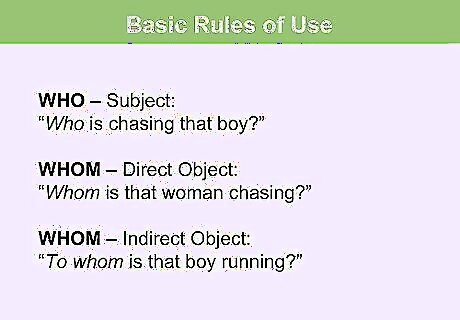
Understand the difference between who and whom. Both who and whom are relative pronouns. However, who is used as the subject of a sentence or clause, to denote who is doing something (like he or she). On the other hand, whom is used as a direct or indirect object of a verb or preposition. While a preposition (at, by, for, in, with, etc.) often comes before whom, this is not always the case, so the key question is to ask, “Who is doing what to whom?” What follows is a quick way to determine which pronoun to use in a particular question.
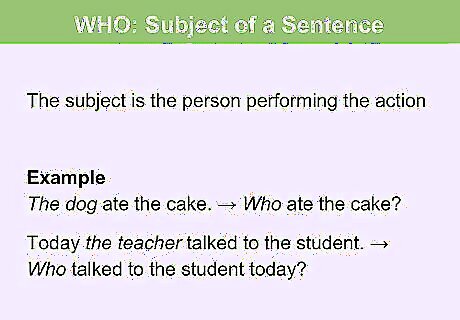
Use who when referring to the subject of a sentence or clause. Who brought the paper inside? Who talked to you today? Who went to dinner? Who ate the cake? Our job is to determine who qualifies.
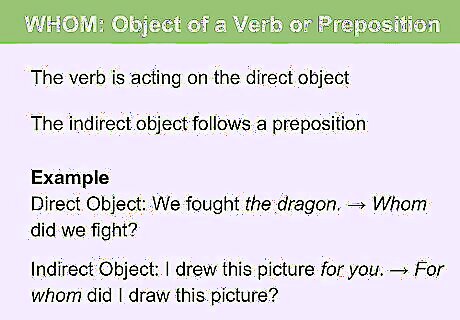
Use whom when referring to the object of a verb or preposition. To whom it may concern: To whom did you talk today? Whom does Sarah love?
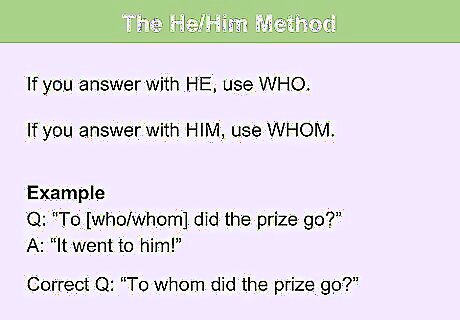
Ask yourself if the answer to the question would be he/she/they or him/her/them. If you can answer the question with her, then use whom. It’s easy to remember because they both end with m. If you can answer the question with she, then use who. Example: A suitable answer to the question, “To [who or whom] did the prize go?” is, “It went to them.” (It is improper to say “It went to they.”) The correct pronoun for the question is whom. Example: A suitable answer to the question, “[Who or Whom] went to the store?” is, “He went to the store.” (It is improper to say “Him went to the store.”) The correct pronoun for the question who.
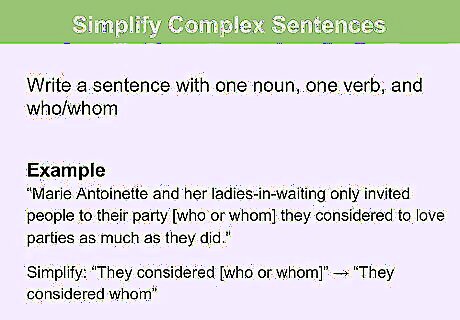
When trying to decide whether who or whom is correct, simplify the sentence. Where other words in a complex sentence might throw you off track, simplify the sentence to include just the basic subject, verb, and object. It helps to move the words around in your head to identify the word relationships. For example: “Marie Antoinette and her ladies-in-waiting only invited people to their party [who or whom] they considered to love parties as much as they did.” The simplified mental version becomes: “whom they considered.” “Marie Antoinette prevented her mother from knowing [who or whom] she invited to the Petit Trianon.” The simplified mental version becomes: “[who or whom] she invited.” Then, you could rearrange it again to say: “she invited whom”, clarifying that she did something to (invited) whom.
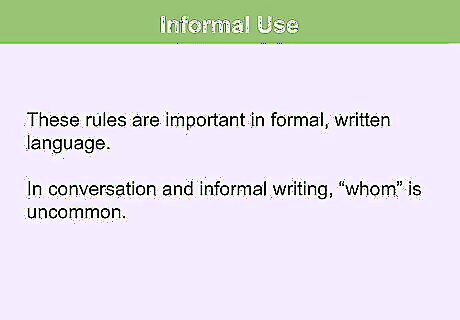
Remember that the distinction between who and whom is less important in informal spoken language than it is in formal written language. It’s possible that the distinction might someday erode altogether. For now, though, it is important to keep this clear in written language.













Comments
0 comment